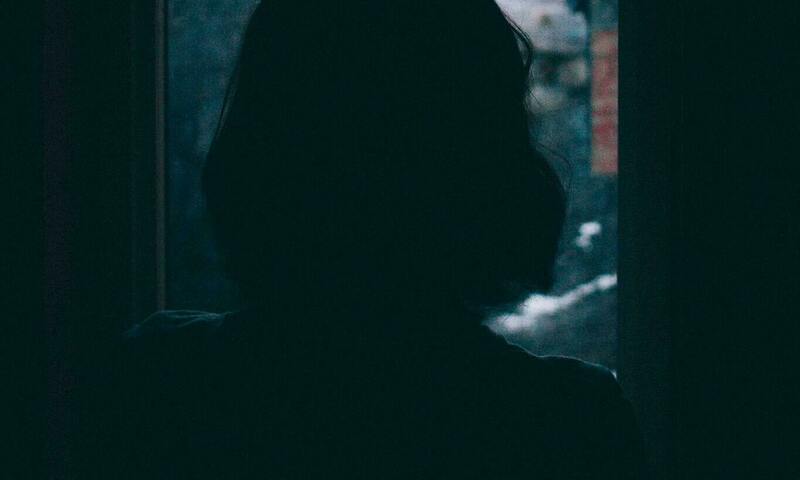I have what feels like everything and nothing to say about this subject all at once. On one hand, I have lived in a state of consistent questioning, sometimes accompanied by doubts for about 2 or 3 years now. On the other hand, I am still constantly learning about what it looks like to question and doubt as a Christian. You don’t have to make it to the end of this blog post to find out that *spoiler alert* I don’t have this thing totally figured out, and I never fully will. While I can’t offer you a nice blog post about doubts and questions with a lovely little bow on it, I can invite you into some of the experiences I have had as I have learned to embrace the questions and doubts. I can share some of the things that have brought comfort, and some of the things that have provided relief. I can sit in solidarity with you if you also find yourself in a spot where questions and doubts are knocking at your door.
I’m just gonna spell this out because I don’t think it’s said enough: It does not make you a “bad” Christian if you have questions. It is okay to have doubts.
I’m not sure where this narrative comes from that having questions and doubts as a Christian isn’t okay, or that it’s something to be shameful about. But in case you haven’t been told this yet, having big questions is okay. Having hard doubts is okay. Considering the circumstances of living in a time that feels quite uncertain and overwhelming, it should not be surprising that questions come up. That being said, life could be everything you’ve ever wanted, and your questioning would still be valid. It doesn’t take a hard circumstance for you to have permission to challenge your faith.
Now, I’ll be the first one to admit that being a person who has tendencies towards questioning in faith can be rough. I experienced a lot of shame and anxiety as I began to have conversations about the things I was questioning. As I shared with people in my life, I felt embarrassed, ashamed, frustrated, and defeated. I felt isolated from the people around me, particularly the ones who were really excited about God at the moment. I felt like I either couldn’t bring that part of myself to the table, or I had to fake it. Looking back, I think much of the isolation I felt was of my own making, but it can feel really scary to bring your full self to the people around you, especially when you feel like you are at your messiest.
As I started this journey of deconstructing my faith, I was hesitant to share my thoughts with others. However, I’ve found that verbalizing my doubts and questions to people I trust can provide a lot of relief. When I would finally confide in a loved one and admit that this thing that felt terrifying to say out loud… “I’m just really angry at God for _______”... “Honestly, I’m not really sure I love God right now”... “God feels sort of narcissistic as I learn about certain attributes of his, and I don’t know what to do with that”... I often found that though what I was saying was scary and hard to acknowledge, so much of the power of the doubt leaves when I actually confront it. It doesn’t change the question or make it go away, but it does make it feel a whole lot more manageable. Sometimes when you let that thought live in your brain only, it grows to feel so much more overwhelming and threatening than it really is.
Opening up conversations has been a really important part of this journey of deconstruction, and I owe a lot of the healing and growth that has taken place in me to the people who have stuck with me throughout this ongoing process. I have had some loved ones who have tenderly embraced me as I sat with these tricky thoughts. They made space for me to ramble on and diffuse the heaviness of what I was feeling. They comforted me by sharing their own questions and doubts, sometimes even overlapping with ones I had. They told me I was not crazy, or wrong, that I should not be ashamed. They reminded me that they didn’t think any less of me because I was questioning. They affirmed that they still believe in me. They prayed with me. They pointed me back to the truths I can rest in and offered what I can firmly stand on.
On the other hand, some people kindly offer responses of “I’m praying for you” or “God has you here for a reason”. While these sentiments truly are loving, I found them to be frustrating at certain points in this process. Sometimes, when I heard these sweet but seemingly shallower responses, I felt like my questions were too big, or I was way too much to handle. Hindsight is 2020, and I can totally acknowledge now that there are dozens of worthy reasons why those responses could’ve been shared. Sometimes, people just don’t know what to say when you bring up some complicated questions about God, and that is just as okay as you having the question in the first place! It is important to remember though, that if you are met with responses that make you feel like you are too much, you are not. You have a God who cares deeply for you and cares to be in this process with you. He is not surprised by any of the thoughts you have. He can handle every doubt you bring to him, no matter how awful it may feel. I believe He is a God that embraces us in our questions and doubts, and that he desires to draw near to us as we work out these things. As we have the messiest thoughts, he looks upon us with delight and adoration. He is not disappointed in our inability to understand, he holds us in that.
As you breathe in that truth - that the God of the Universe looks at you in all your questions and crappy feelings and tells you that you are loved and chosen - I hope you can approach your doubts with assured confidence. This has made all the difference for me. Sure, I still have days where I forget this truth (or convince myself otherwise) and I default to the mode of living in shame as I sift through my questions. But the more I continue the process of rebuilding my faith, the more I am learning to embrace the hard questions, and to do so boldly. I rest in the fact that God will love me no less as I do this, and that he can handle my very worst thoughts.
Even as I still have so much to learn and grow in this area of my faith, I have a few more things I want to share, particularly for the ladies who are in the thick of it right now…
Spiritual direction, therapy, and pastoral care can be really great spaces to process through some of these things you’re thinking about. This is true always, but it can feel particularly helpful if you are having a hard time with these conversations in your communities and want to bring someone in on it who does this type of thing for their vocation.
The book, Searching for Sunday by Rachel Held Evans felt like the biggest hug and a huge space of solidarity for me when this journey felt its hardest and I felt very alone. I would recommend this book to anyone who specifically finds themselves having hard feelings about the Church. This was a very sweet and special read and in a season that was spiritually quite exhausting, but so formative.
Sometimes delving into the complexities of these questions and doubts is just too much. And that is okay too. It can take some time before you are ready to engage the hardest parts, and that is completely understandable. When I was there, things like praying, worshipping, and having conversations about God felt truly tiring or anxiety-producing. But if I could encourage you to do one thing, it would be this: keep an eye out for God’s little kindnesses. He is a good and kind God, and sometimes he is so sweet to show up in small ways throughout your day. I think his kindness looks different to everyone, but if you are watching, I believe God sometimes shows us the things he delights in\ and invites us to delight with him.
 Biola University
Biola University



